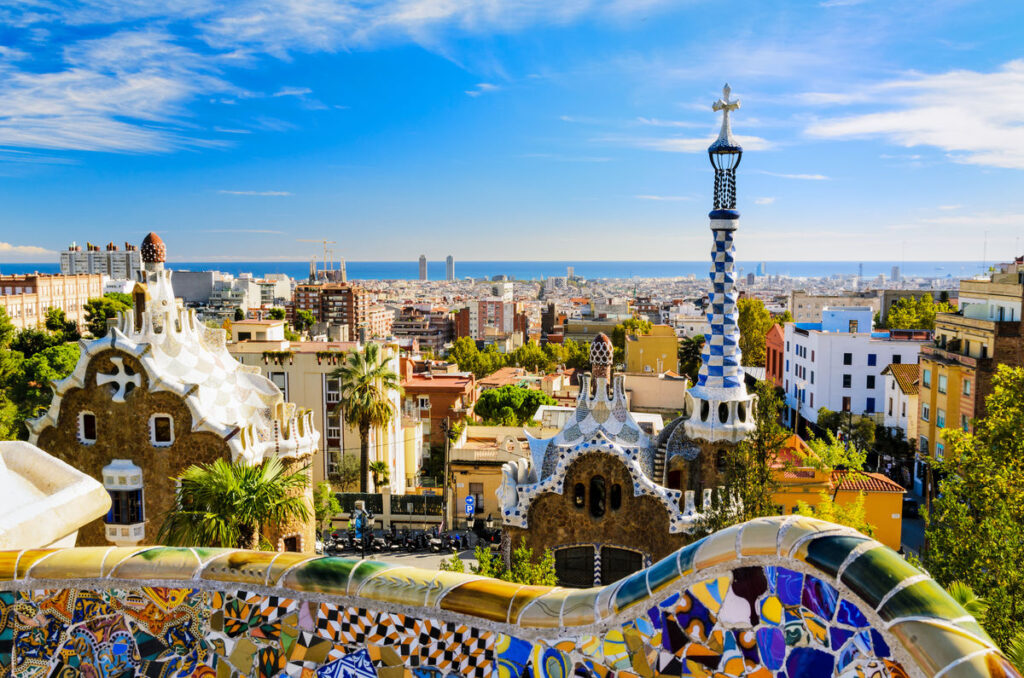From news about infrastructure and mass protests to the continued success of a particular style of European travel, July was full of travel headlines from across the Atlantic. If you missed it, read on to get up to speed. Also, be sure to sign up for the TravelPulse newsletter to get the latest European travel news all summer long.
Barcelona water protests gain attention
Some Spanish residents have long been unhappy with the state of tourism in their country, but the summer of 2024 has brought a turn of events. Demonstrations against the negative effects of tourism have taken place across Spain, escalating earlier this month when activists in Barcelona splashed water on travelers. A viral video of diners on outdoor terraces scrambling to avoid the water has brought debate about tourism and its place in cities to the forefront.
An AMAWaterways river cruise along the Rhine Valley. (Photo: AMAWaterways) (Photo: AMAWaterways)
Sailing on the river is a big hit
Travel Weekly reported that Rhine and Douro Valley cruises have been popular this summer, and TAC said that sales of European river cruises are up 13% so far this year. Moreover, many river cruise companies list the Rhine as their top seller. Portugal’s Douro Valley is also so popular that Rudi Schreiner, president and co-founder of AmaWaterways, said sales on the Douro are “out of control.”
Travelers who volunteer at the urban farm Øens Have can enjoy a free farm-to-table lunch with CopenPay. (Photo by Lukas Bukoven)
Copenhagen launches its own green initiative
The Danish capital has been at the forefront of green living, and now it’s asking travelers to get in on the action — and willing to pay them for it. This month, TravelPulse reported that the city announced plans for CopenPay, a program that will reward people for exploring the city by bike, volunteering at urban farms, and helping clean up the city. Travelers who join CopenPay will be given the opportunity to get free admission to museums and take part in free travel experiences.
Royal Caribbean cruise ship Serenade of the Seas heads into passenger terminal in Amsterdam, Netherlands. (Photo: Adobe Stock/NAN)
Amsterdam details cruise reduction plan
The Dutch capital has revealed details of efforts to reduce cruise ship traffic at the port and tourist traffic within the city. From 2026, the number of large ocean-going cruise ships allowed in Amsterdam will be reduced from 190 to a maximum of 100 per year. In 2027, incoming cruise ships will be required to use shore-based power only, helping to reduce emissions. River cruises will also be scaled back from 2,300 to 1,150 per year. By 2035, the city of Amsterdam wants to relocate its entire passenger cruise terminal somewhere outside the city borders.
Berlin, Germany (Photo credit: AdobeStock)
Repairs begin on Deutsche Bahn
Germany’s national rail company Deutsche Bahn launched a major renovation project this month that will disrupt travel to Germany for passengers and residents for at least the next six years. The plan calls for renovation of 40 of the country’s most important rail lines by 2030, but each line will be closed for several months during the renovation.
Crowds of tourists at the Acropolis in Athens, Greece (Photo by Janine Kristof)
Athens Mayor Declares Need for Change
This month, Athens Mayor Haris Doukas was reported as saying that tourists visiting Athens contribute “just 0.40 euros” per person to the local economy. This tiny figure is when you take into account the overall cost per tourist to Athens (the burden on infrastructure, housing, etc.). He went on to say that for Athens to justify its current tourism levels, it has to make changes to current trends.
A flag bearing the official logo of the Paris 2024 Summer Olympics. (Photo credit: Adobe Stock/kovop58)
It’s not hot in Paris
Common sense would suggest that Paris would be a popular travel destination this summer, but news reports this month suggest otherwise. People are avoiding Paris altogether, and Delta Air Lines, which dominates the market for direct flights between France and the U.S., stands to lose the most. “No one is going to Paris unless they’re going to the Olympics. Very few people,” Delta CEO Ed Bastian said in an interview with CNBC.
French railway line disrupted
On the eve of the opening night of the Olympics in Paris, saboteurs set fire to key parts of the French rail network, causing chaos in France, forcing travellers to suddenly change their plans to get to Paris, causing disruptions, delays and cancellations ahead of the opening ceremony.
Subscribe to the daily TravelPulse newsletter for the latest travel news, updates and deals.

